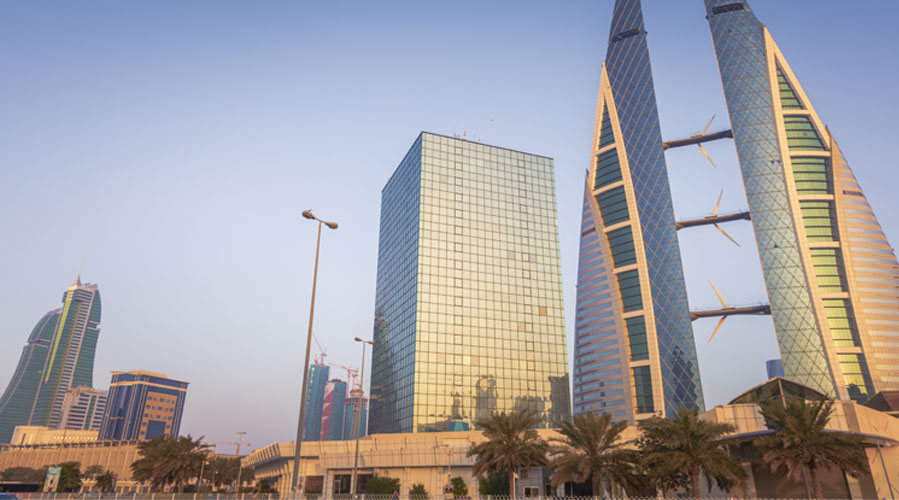
The HSBC Global Report shows that an international lifestyle clearly pays off for expats, especially for those who move abroad at a younger age. They're crossing borders to broaden their horizons, gain new skills, and improve their lifestyles.
Then there's the financial benefits: almost 75% of international expats reported an increase in their income when they moved. 1 Tax rates, the cost of living and disposable income all play a part in growing your global nest egg abroad.
We highlight the cities where expats are prospering and what they're saying about their lives abroad.
Switzerland takes the top spot for expats looking to grow their wealth. There's good pay and the opportunity for career progression and an improved quality of life. This shout out doesn't come as a surprise: the small mountainous country in Europe has secured a position in the top 10 favourites among expats every year since 2011. 1
While there's currently no minimum wage in Switzerland except in two regions, the country offers some of the highest wages in the world, third only to Luxembourg and Iceland, and working hours are highly regulated. 2
Switzerland is great for people who love the outdoors and a low-key social life. The public transportation and timeliness of all services are outstanding. *
The tax structure in Switzerland is complex. It's a multi-layered tax system shaped by the country's three levels of government, making it difficult to calculate average tax rates. The 26 cantons (states, or regions) have their own tax laws and practices, so the tax rates can vary.
In an initiative to bring in wealthy skilled workers, two residency schemes were introduced by the Kingdom in 2019: one permanent, and the other to be renewed every year. This new law allows expats to invest, to own property, and to bring family members to the country to live with them.
The standard of living is high in Saudi Arabia and the cost of living low. It's not uncommon for expats to employ drivers, domestic helpers and gardeners – something that would be considered lavish in other countries.
It's financially rewarding with improved healthcare, improved schooling for children, more international holidays, much lower cost of living, better housing, shorter travel to work, and better safety.
Skilled expatriates are often offered attractive packages that might include housing, education and travel allowance, and healthcare insurance. High salaries and no personal income tax make Saudi Arabia a great place to grow your wealth while living abroad.

One of the major benefits of working in the UAE is earning a tax-free income. Of those asked in our survey, 87% of expats are looking to save for their retirement and 85% want to invest in property. There's no minimum wage in the UAE, which can be a plus for expats: there's more room to negotiate salaries.
Many businesses compensate expats with higher salaries and attractive benefits, like paid vacations and housing subsidies. The average salary in Dubai, the most populated city in the country, is between USD140,000-150,000. This is well above the global average of USD75,000. 1
Come with a positive mind - you're moving to a great country! Nowhere in the world will you find a place with such a large mix of people from so many varied cultures.
In addition, employees who have spent more than a continuous year working in the UAE are entitled to gratuity pay called End of Service Benefits (EOSB) when they resign or when their employment is terminated.
Those expats from citizenship-based tax system countries, such as the US, are still obligated to file their income taxes back home, no matter where they reside. Citizens from either residential- or territorial-based countries or regions only have to pay taxes if they reside or earn income in their home country. This gives them a great chance to build their wealth while working in the UAE, tax free.
Learn more: Moving to the UAE? Here's a checklist for your first 3 months

Bahrain is consistently rated as one of the top locations to work for expats. In fact, more than half the population of this 33-island archipelago is made up of expats and migrants.
Life in Bahrain is pretty laid back, with concerts and festival usually held throughout the year, and English is widely spoken. What sets Bahrain apart from Saudi Arabia and the UAE is that it's progressive when it comes to gender equality, making it an attractive career destination for both men and women.
I believe Bahrain to be the most progressive, liberal and family-oriented country in the Gulf region.
HSBC Expat Survey respondents said they believe the island nation to be a good place for start-ups and advantageous as an investment hub. Like Saudi Arabia and the UAE there's no personal income tax in Bahrain.

Expats who move to this economically thriving metropolis see their income increase an average of 41%. 1 There are many financial and professional services firms in Hong Kong, each vying for talent. Expats often cite career progression as one of the main reasons why they stay – that and the higher salaries, great quality of life and a safe environment to raise kids.
You can accumulate wealth in a low tax environment far more quickly than in the UK.
Hong Kong operates under a territorial-based tax system – you only pay income tax on money sourced in Hong Kong and there's no capital gains or estate duty tax.
Along with Singapore and the Channel Islands, Hong Kong is a popular global wealth management hub.
Use your stint abroad as an opportunity to build up your savings and maybe look into buying property abroad. There's a lot of good reasons why investing in international property could be the right move in growing your global nest egg. You can:
Managing wealth is the key to long-term financial success for expats. While starting a new life in a new part of the world has its challenges, with some careful planning your finances shouldn't be one of them.
We can tell you the best way for you to apply for an overseas account. Simply select your current location and where you would like to open an account. We'll then walk you through the steps.
Still exploring how to grow your wealth abroad? Learn more about HSBC international banking and investment services
HSBC Holdings plc has prepared this article based on publicly available information at the time of preparation from sources it believes to be reliable but it has not independently verified such information. HSBC Holdings plc and the HSBC Group (together, "HSBC") are not responsible for any loss, damage, liabilities or other consequences of any kind that you may incur or suffer as a result of, arising from or relating to your use of or reliance on this article. The contents of this article are subject to change without notice. HSBC gives no guarantee, representation or warranty as to the accuracy, timeliness or completeness of this article.
This article is not investment advice or a recommendation nor is it intended to sell investments or services or solicit purchases or subscriptions. This article should not be used as the basis for any decision on taxation, estate, trusts or legacy planning. You should not use or rely on this article in making any investment decision. HSBC is not responsible for such use or reliance by you. Any market information shown refers to the past and should not be seen as an indication of future market performance. You should always consider seeking professional advice when thinking about undertaking any form of prime residential or commercial property purchase, sale or rental. You should consult your professional advisor in your jurisdiction if you have any questions regarding the contents of this article.
* The 2019 Expat Explorer survey is a global survey completed by 18,059 expats across the world. The research was conducted online by YouGov in March and April 2019. League tables are calculated using responses to 27 of the questions asked in the research. A minimum sample of 100 expat respondents including at least 30 expat parents is required for a country to be included in the league tables.
1 HSBC Expat Explorer Survey
2 OECD Data: Average wages. https://data.oecd.org/earnwage/average-wages